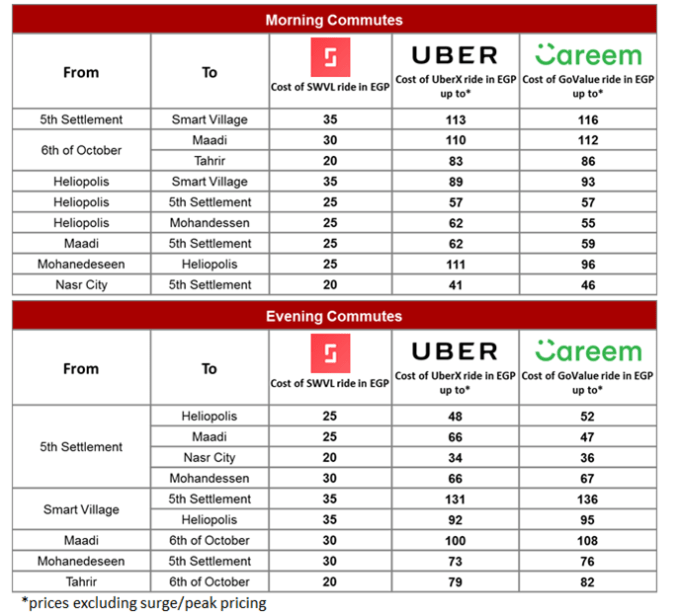Swvl, the Egypt-headquatered ride-sharing startup founded by Mostafa Kandil is back in operations after months of ban from the Kenya ’s National Transport and Safety Authority. This is one classic case of policy uncertainty in doing business in emerging markets, where startups can be swept off the feet without much ado. Although Swvl’s General Manager Kenyan operations, Dip Patel says this is a major new strength for the company which is looking to recover from the financial losses incurred from the ban, the covid-19 pandemic has further complicated issues.

Once we exit the lockdown, we will be able to steadily bring back our operations. From here, we can show our corporate customers that we have met all the regulatory requirements. We aim to continue our operations and we are very pleased about the consideration of the regulatory framework to incorporate technological developments coming up in the industry”, said SWVL’s General Manager, Dip Patel.
- In early October, 2019 Kenya’s National Transport and Safety Authority (NTSA), the authority in Kenya in charge of road use and safety asked digital public transport services SWVL and Little Shuttle to cease operations or face arrests for operating under Tour Service License but engaging in commuter services.
Swvl’s Operation In Kenya
Swvl recently invaded its Kenyan market with over Sh1.5 billion ($14.5 million) investment to finance an aggressive route expansion plan in Nairobi.
- Swvl, already operational on multiple Nairobi routes, has set a target to grow its network to 500 routes served by 1,000 buses.
- The app-based public service transport operator that launched in Nairobi on a test basis seven months ago has already signed up 150 buses on 100 city routes.
- The firm, which started in Cairo, is seeking to take advantage of Nairobi’s chaotic and largely unreliable public transport system.
“Kenya is a market with a need for a stable solution for the perennial traffic snarl ups and SWVL believes that we can be of great benefit to the local consumer and the transport sector as a whole,” said founder, Mostafa Kandil.
- The tech company leases the vehicles that currently include 11-seater and 14-seater vans as well as 22-seater shuttles at a daily rate of $70 (Sh7,000) and $150 (Sh15,000) to ply the various routes. It tops up the daily collection if the earnings for the day are less than the daily leasing amount, but collects any income above the agreed rate.
- The app-based service allows users to book trips using their mobile devices, which notifies them of the nearest pick-up point, price and time by the bus.
- The driver’s contact and registration number of the vehicle as well as live map update appear on the app interface for easy identification once the buses arrive.
Read also:Kenya’s Transport Authority Cracks Down On Startup Swvl’s Drivers And Vehicles
“We’re building a mass transit system. The investment will keep us going in this market,” said Shivachi Muleji, SWVL general manager for Kenya.
The firm says its popular routes include Ruiru to the CBD/Upper Hill, Karen to CBD/Westlands via Upper Hill, Ongata Rongai to Westlands/CBD via Upper Hill, Ruiru to Westlands, Ndenderu to CBD/ Upper Hill, and Kikuyu to CBD/ Upper Hill.

- According to Mr Muleji, the company is in negotiations with local Ford dealers and a financial institution to provide vehicles at 20 percent cheaper than the market rate as well as financing options for drivers. This is aimed at growing its bus network to meet the demand of the planned route expansion. The app company, which has received pushback on some of its routes from PSV (matatu) operators, says it is engaging some Saccos in the sector to invest in the business.
- The service currently charges a flat rate of Sh200 but has plans to offer distance-based pricing at the end of 2019 or early next year.
“Kenyans are picky consumers so you have to offer a premium service for the extra 10 percent you charge,” said Mr Muleji.
- Read also: Egyptian Transport Startup Swvl targets Nigeria, Africa And Asia before the end of 2019
- Tech-based solutions in the transport sector have been causing a ripple locally with Uber making its entry in the taxi business several years ago despite protests by taxis at the onset.
- Kenyan-based Little Cab also offers a similar shuttle service in the market while Safiri is still in the pilot stage of data collection.
Charles Rapulu Udoh

Charles Rapulu Udoh is a Lagos-based lawyer who has advised startups across Africa on issues such as startup funding (Venture Capital, Debt financing, private equity, angel investing etc), taxation, strategies, etc. He also has special focus on the protection of business or brands’ intellectual property rights ( such as trademark, patent or design) across Africa and other foreign jurisdictions.
He is well versed on issues of ESG (sustainability), media and entertainment law, corporate finance and governance.
He is also an award-winning writer.
